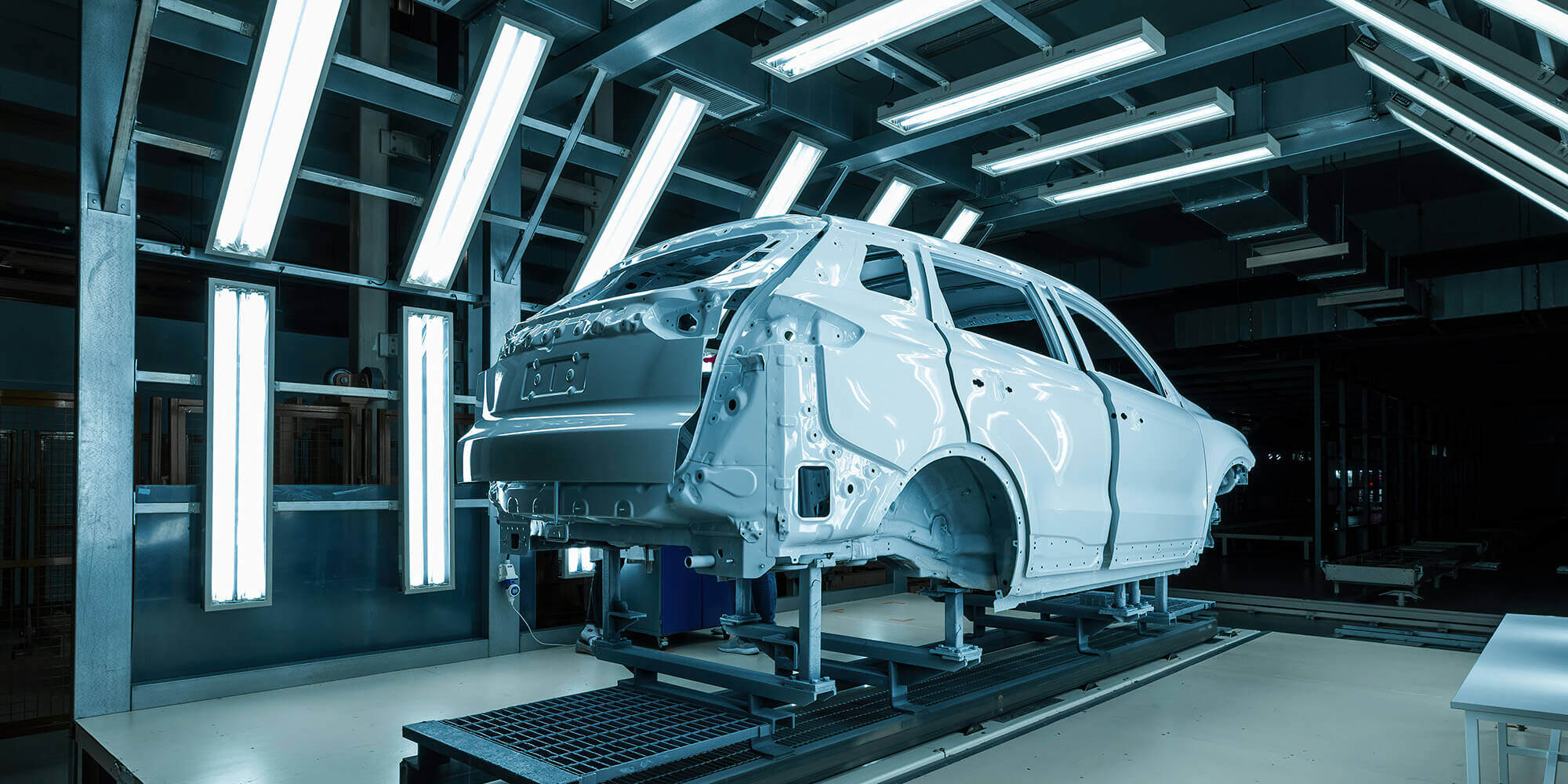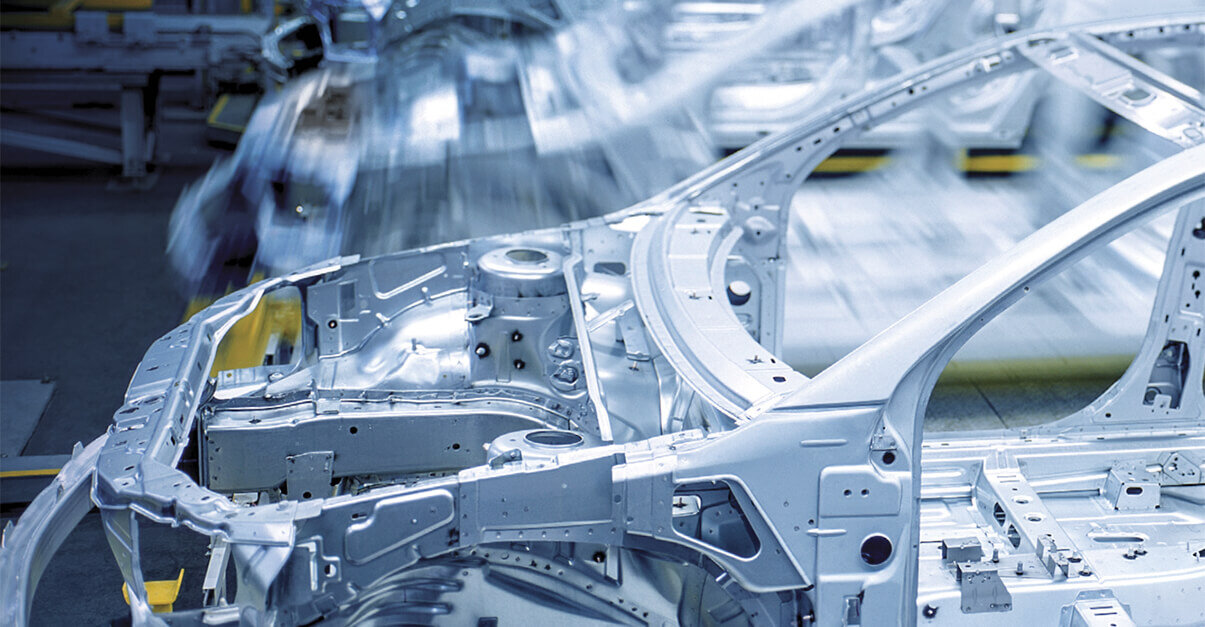How to shift the automotive industry to renewable energy

Automakers play a pivotal role in mobility and economic systems worldwide. At the same time, they significantly contribute to global greenhouse gas emissions. In 2022, private cars and vans were responsible for over 25% of total oil consumption and approximately 10% of global energy-related CO2 emissions. To keep climate change in check, the automotive industry must transform.
Setting emissions reduction targets for the automotive industry
The Science Based Targets initiative (SBTi) has released updated guidance for land vehicles, enabling automakers to align their emissions reduction targets with the Paris Agreement’s 1.5°C goal.
A major update concerns Scope 3. According to the guidance, automakers aiming to decarbonise must focus on their largest source of emissions – those generated by customers driving vehicles. This requires a dual approach: phasing out petrol and diesel cars and vans by 2035 in major markets, and accounting for the emissions from charging electric vehicles, including those related to electricity generation.
Renewable electricity is essential to automakers’ climate efforts. On the road to decarbonisation, automotive companies can implement clean energy in their manufacturing processes and beyond, shrinking their emissions and encouraging others to follow the same path.
A renewable transition in carmaking
To begin the shift, carmakers can first address their own operations. There is considerable electricity usage in car manufacturing, including aluminium shape casting and throughout the assembly line. Offices and other facilities are also significant consumption points.
Leaders in the land mobility sector are already transitioning to clean energy. thyssenkrupp Automotive Technology, one of the five business segments of the German business group thyssenkrupp AG, is collaborating with Ecohz to switch to 100% renewable electricity across its global operations in 2024. By doing this, the company aims to reduce 90% of its Scope 1 and 2 emissions worldwide, including countries such as Germany, China, the US, and Mexico.
Reducing supply chain emissions with renewables
thyssenkrupp AT’s efforts to reduce emissions are also vital for other car manufacturers who buy the components and systems the company produces. Lower Scope 1 and 2 emissions for thyssenkrupp AT means a cleaner supply chain for its partners.
Supply chains play a significant role in the emissions profile of every company in the automotive sector. Upstream processes such as aluminium reduction and iron ore extraction are electricity intensive. Downstream, the largest source of emissions remains the use of vehicles by end-consumers, which requires a case-by-case strategy to curb effectively.
Companies can promote clean energy adoption among suppliers by leading clean energy adoption programmes. Software can help too. Ecohz has developed a dedicated Supply Chain Portal to help brand owners and supply chain partners easily source renewable energy. Regardless of the approach, credibly documenting clean energy consumption is essential.
Procuring and documenting the use of renewable electricity
How can companies verifiably purchase and report the use of renewable energy? The most flexible solution is using Energy Attribute Certificates (EACs).
EACs are market-based mechanisms that allow consumers to track the origin of renewable electricity and claim ownership of its environmental benefits. When green power plants generate a unit of electricity – typically 1 MWh – and inject it into the grid, an EAC is issued. Consumers can then buy the certificate to claim unique ownership of that volume and reduce their carbon footprint.
There are multiple EAC systems around the world. Energy consumers can purchase these certificates either separately from their physical electricity consumption or bundled with physical electricity delivery, for example, as part of a Power Purchase Agreement.
By purchasing EACs, automakers can demonstrate their commitment to clean energy without needing to change their physical power providers. EACs are instrumental in complying with frameworks such as the Greenhouse Gas Protocol and SBTi, as well as corporate initiatives like RE100.
How can Ecohz help?
We work with companies in the automotive sector to deliver their emissions reduction goals. Our advisors walk with you every step of the way and guide you in procuring renewable energy according to your needs, regardless of location.
Our team has also designed a programme to integrate renewable energy into your Scope 3. From dedicated software to ongoing advisory, we create bespoke strategies for supply chain decarbonisation for companies of all sizes in the land-vehicle industry.
Related content

.png?width=1280&height=719&name=Thyssenkrupp%20automotive%20(1).png)
Do you want to know more about our products and services? Let's have a chat.
Get in touch
Preben Munch
Senior Director Sales & Solutions